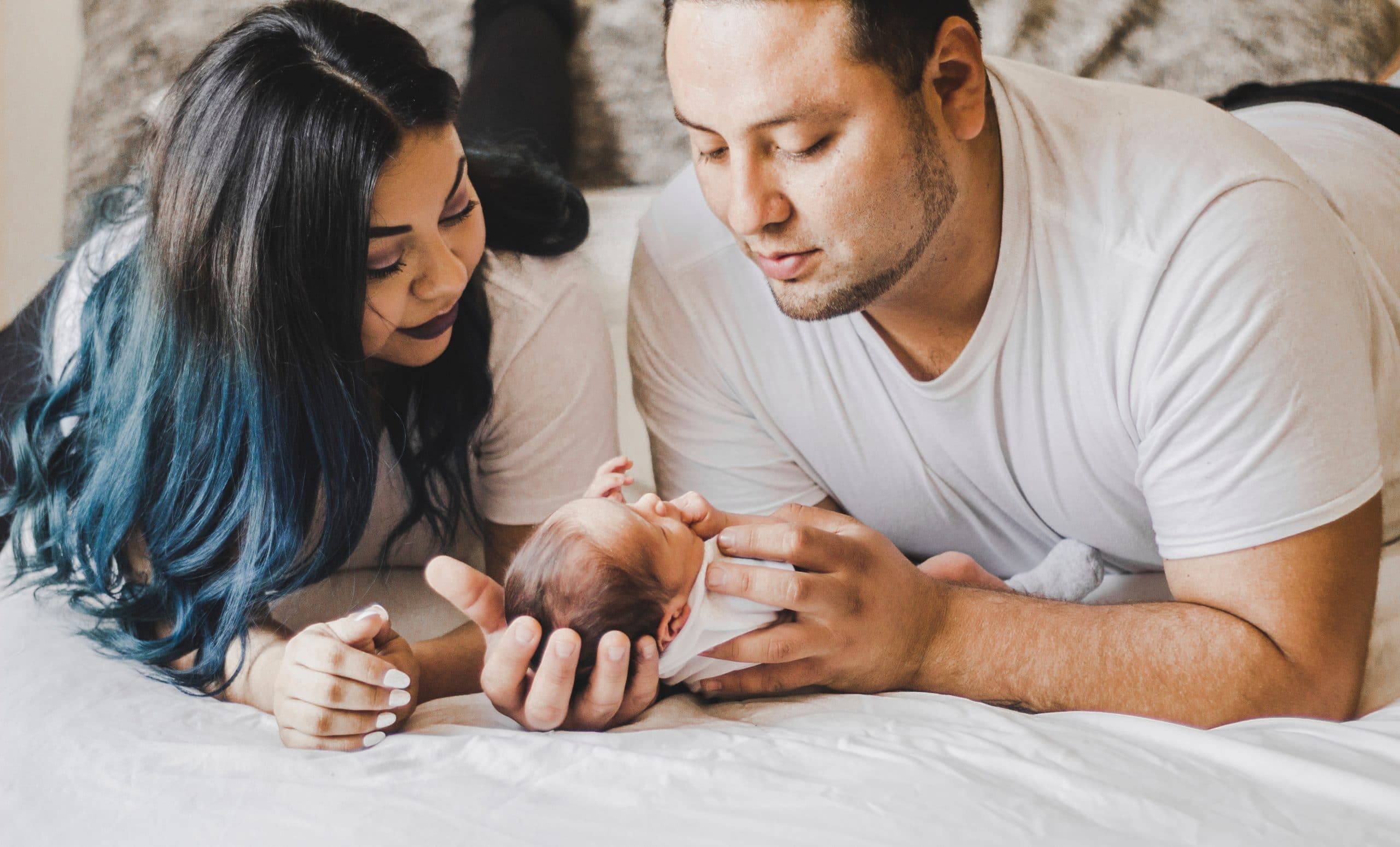What is jaundice? Can it be the result of medical malpractice?
Let’s explore what jaundice is, what it looks like in newborns, and how it should be treated.
We’re also going to review how some cases of jaundice are due to medical malpractice and what to do next if you think you have a case.
If you or someone you know had a newborn with jaundice and sustained injuries, keep reading to find out if you’re eligible to file a medical malpractice lawsuit.
What is Jaundice in Newborns?
Jaundice is usually diagnosed based on your newborn’s appearance and can be confirmed with lab work-ups.
Some signs to look for if you suspect your baby has jaundice include:
- yellow tint to the skin and eyes
- your baby has trouble feeding or gaining weight
- the baby seems more lethargic than usual, or sick
Jaundice is typically diagnosed between a few days to a couple of weeks after birth. It occurs when there is too much bilirubin in the bloodstream.
Bilirubin occurs naturally as a byproduct of the breakdown of red blood cells. Once the red blood cells have broken down, the bilirubin is then filtered through the liver and released via urination.
Bilirubin is in fact healthy to have. But too much bilirubin can impair your baby’s development and growth, and if left untreated, could even lead to death.
It’s imperative that if your baby is diagnosed with jaundice they get medical treatment to prevent possible injuries.
What Happens if Left Untreated?
Most cases of jaundice are fairly mild and resolve after treatment. But if jaundice is left undetected and untreated, then your baby is put at risk to develop detrimental health conditions.
Common health conditions due to untreated jaundice include the following.
Developmental delays
Developmental delays are when a child has not fully developed certain milestones that most children develop at a certain age. A developmental delay can impair your child’s motor skills. Delays affect their speech and communication skills, social skills and day-to-day life skills.
Kernicterus
Kernicterus can develop if your baby has a severe case of jaundice and is left untreated, or isn’t treated properly. If the excess bilirubin is not treated, it may spread to the brain tissue, which can cause permanent brain damage. Permanent brain damage can develop in different forms. Some of the most common delays include developmental delays, movement problems, hearing loss, and problems with moving the eyes.
Athetoid cerebral palsy
Kernicterus can actually cause athetoid cerebral palsy. Athetoid cerebral palsy (AKA Dyskinetic CP) is a type of cerebral palsy that limits the ability of your child to control their muscle movement. If jaundice is left untreated or isn’t treated properly, then the excess bilirubin will become toxic to the developing neurons.
In severe cases, death
In the most extreme examples, you may lose your baby if they have a severe case of jaundice and the medical provider does not provide treatment.
Any of these conditions, and others, are considered birth-related injuries and most of these birth injuries can be prevented by your medical provider.
If your medical provider fails to provide treatment or the proper treatment, they can be held legally responsible for any related injuries.
How is Jaundice Treated?
Jaundice is treated mostly by light therapy. It can also be treated via intravenous immunoglobulin and exchange transfusion.
Phototherapy, or light therapy, is when a baby is placed directly under a lamp or lights. This emits a color that structurally changes the bilirubin molecules, so that they may be excreted.
Intravenous immunoglobulin is when a blood protein is administered intravenously (through the vein) to decrease the levels of bilirubin.
Exchange transfusion is typically only necessary in extreme cases. An exchange transfusion is when a small amount of blood is drawn from the newborn and replaced with donor blood. This dilutes the number of antibodies in the blood and decreases the levels of bilirubin.
Is Jaundice Due to Medical Malpractice?
Jaundice occurs in about 60% of newborns, however, to sue for medical malpractice, the medical provider must have failed in realizing the risk and properly caring for your newborn.
This means that once your doctor has diagnosed your baby with jaundice, they must carefully manage and care for your baby as they develop to make sure the liver continues to form properly.
One example of medical malpractice is if your medical provider failed to take action to treat jaundice.
Since jaundice is so common and most of the time is considered benign, some medical providers may overlook your newborn’s symptoms. Doing so puts your newborn at risk.
Your medical provider may be held legally responsible for any injuries or damages sustained to your child.
Another example is if your medical provider failed to consider the mother’s medical history and did not carefully monitor your newborn’s jaundice condition.
Your medical provider could also fail to interpret your newborn’s blood tests accurately and not provide proper treatment.
If your newborn’s blood tests showed high levels of bilirubin but were misinterpreted, your child did not receive the proper phototherapy treatment needed to resolve the diagnosis of jaundice.
Do I Have a Case?
Medical malpractice is defined as when a medical provider fails to provide the standard level of care (or treatment) and causes harm to their patient.
To prove that your medical provider acted in negligence, or malpractice, then your attorney will need to compile evidence to show how.
If you believe your medical provider failed to treat your newborn for jaundice or failed to do so properly, call Grover Lewis Johnson for a free consultation today.
Our experienced and knowledgeable medical malpractice team can review the facts and help determine if you have a medical malpractice case.
Don’t wait any longer — contact us today and get the legal counsel you deserve.
Photo by Laura Garcia from Pexels

